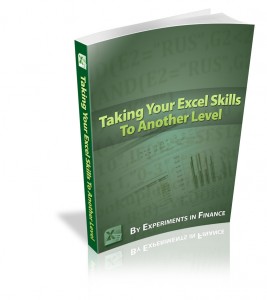(Note: this post is written as part of My Money Forest’s Group Writing Project. Head there to participate or read more posts by others on the subject of “My Best Piece of Financial Advice”.)
Money is a funny beast.
As much consideration as you give to what stocks to invest in, which credit cards to sign up for, how much in loans to take out, or dream big about how you’ll make your millions, it’s wise to evaluate your relationship with money itself from time to time.
Several years ago, I remember my CPA telling me once that people reacted very extremely to windfalls (of whatever size), and almost never in a good way. Those who won lotteries often lost their winnings because they felt “it wasn’t really supposed to happen anyway”. This also often happened to people who inherited unexpected money from a relative. People who won large settlements due to an injury or illness often spent their money quickly and angrily, as if in revenge for the high cost they had to pay to get the settlement. What’s the overriding theme here? I believe it’s that none of these people had a good emotional grip on money.
If you look at it, it seems the emotion most commonly associated with money is fear: of not having enough of it, or losing it once you do. The former might represent people who have large amounts of debt and therefore feel in a sense enslaved to money. The latter might include those who forget that money’s purpose is to be used and not simply amassed. Finding a balance between these two teeter-tottering fears is a hard task a neverending process, because life is always changing. Which of the two categories do you relate to more? Personally, I fall more into the latter.
This might also be why most personal finance articles out there (including ones written on this site) tend to emphasize savings and thriftiness rather than spending and enjoying money. It’s apparently taken as a given that humans have a predilection for spending every dollar they earn, and that emphasizing the enjoyment of using and spending money leads down a slippery slope.
However, it dawned on me recently that if you truly have a healthy emotional relationship with money, the joy of spending and saving should go hand-in-hand, or at least be a non-issue. But maybe being able to do that would be the financial equivalent of reaching Buddhist enlightenment or something.
Still, isn’t it a worthy goal to work toward? Think about it: like so many other things in life, decisions about money based on fear can lead to bad results because instead of you controlling money, a means and tool, it’s controlling you.
That’s why the idea of building long-term wealth by putting away a percentage of your paycheck and growing it in an index fund seems to work for many people. It takes away the difficult day-to-day emotions associated with deciding what to invest in, when to do it, and how much money to put in. But it’s not the only way, or else there wouldn’t be successful and famous businessmen and entrepreneurs out there, either.
The bottom line is, no matter what path you’re on, it’s worth remembering that money is a necessary means to live life, one to be saved, used, donated, considered, and enjoyed, but hopefully never feared.
***************************************************
Look Good at Work and Become Indispensable Become an Excel Pro and Impress Your Boss

***************************************************


My Money Forest - Personal Finance, Investing, Business and more!
[…] Develop a healthy emotional relationship with money. […]
Tim
Thanks for participating, you’re the first person! :) Great article.
AllFinancialMatters » Blog Archive » A Late Weekly Roundup
[…] Ricemutt reminds us to Develop a Healthy Emotional Relationship With Money. […]
nmobcbfqmy
depwqeoa…
rbzviswass nfypyuevci bzpyxidlc oornsaukce …
My Money Forest - Personal Finance, Investing, Business and more!
[…] Ricemutt […]